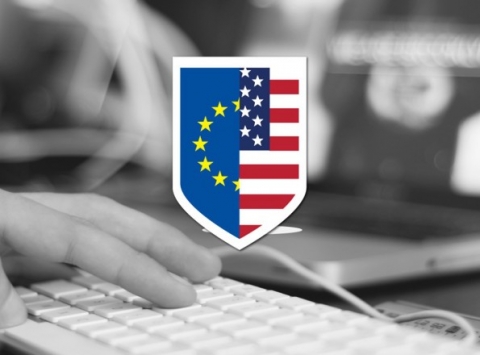Mar112016
Posted at 9:55 AM
Guest blog post by Penny Pritzker, U.S. Secretary of Commerce and Andrus Ansip, Vice-President of the European Commission for the Digital Single Market
Europe and the United States have a long history of deep political and economic ties. Our economic relationship is the largest in the world, with goods and services trade between us totaling about $2.7 billion a day.
It should come as no surprise that these linkages extend to the digital realm as well. In fact, $260 billion in digital services trade moves between the U.S. and the EU annually. Given these facts the U.S. and the EU have made stronger cooperation on issues related to the digital economy a top priority.
On both sides of the Atlantic, we already share the same goals. We want to ensure that digital technologies are helping to create jobs, generate growth, build thriving technology ecosystems that support startups and entrepreneurs, and ensure the protection of privacy and other public policy goals.
On Friday, March 11, we are meeting in Boston to further our work toward these critical aims. At the Massachusetts Institute of Technology, we will come together to exchange knowledge and insights on digital innovation. We will be joined by private sector leaders from both the U.S. and the EU, who will offer their views on how best to enable the growth of the digital economy.
We will discuss initiatives such as Europe’s proposal to build a Digital Single Market, which is an opportunity to fuel growth in Europe and in the trans-Atlantic digital economy. The EU’s vision of the Digital Single Market will tear down barriers to innovation, and create a welcoming climate for investors.
We will also discuss our recent political agreement on a new structure and arrangement to facilitate transatlantic data flows while strengthening the protection of personal data, the EU-U.S. Privacy Shield.
Looking to the future, it is clear that data will continue to be fundamental – whether we are talking about the Internet of Things, quantum technologies, apps, or e-commerce. Data is the basis of our digital future without borders, which presents new challenges that we are confident we can solve together.
The ability to transfer data easily, smoothly and securely worldwide is vital, but it is particularly important for the EU and the U.S., as data flows between us are the highest in the world. The EU-U.S. Privacy Shield is an important milestone for all of these reasons.
Nobody would deny that these have been lengthy and difficult negotiations, given the legally complex and politically sensitive exercise we undertook.
Partners on both sides of the Atlantic worked around the clock to finalize a framework that provides certainty to help grow the digital economy by ensuring that thousands of European and U.S. businesses and millions of individuals can continue to access services online. In the end, we achieved a strong agreement that enables transatlantic commerce while safeguarding privacy. Both partners will work to make sure that people’s privacy will be fully protected and that we are fit for the opportunities of the digital age.
The Privacy Shield is a robust new framework that offers significant improvements over the previous scheme. And it is a 'living mechanism' which will be continuously monitored and reviewed on an annual basis.
Work to make the Privacy Shield a reality has started on both sides of the Atlantic. In Europe, discussions with the EU's 28 national governments and data protection authorities are entering a crucial phase.
Working together, we will strengthen trust and confidence in the online world. It is what will drive our digital future – building on our longstanding history of trust, cooperation, and mutual understanding to further the global digital market.

